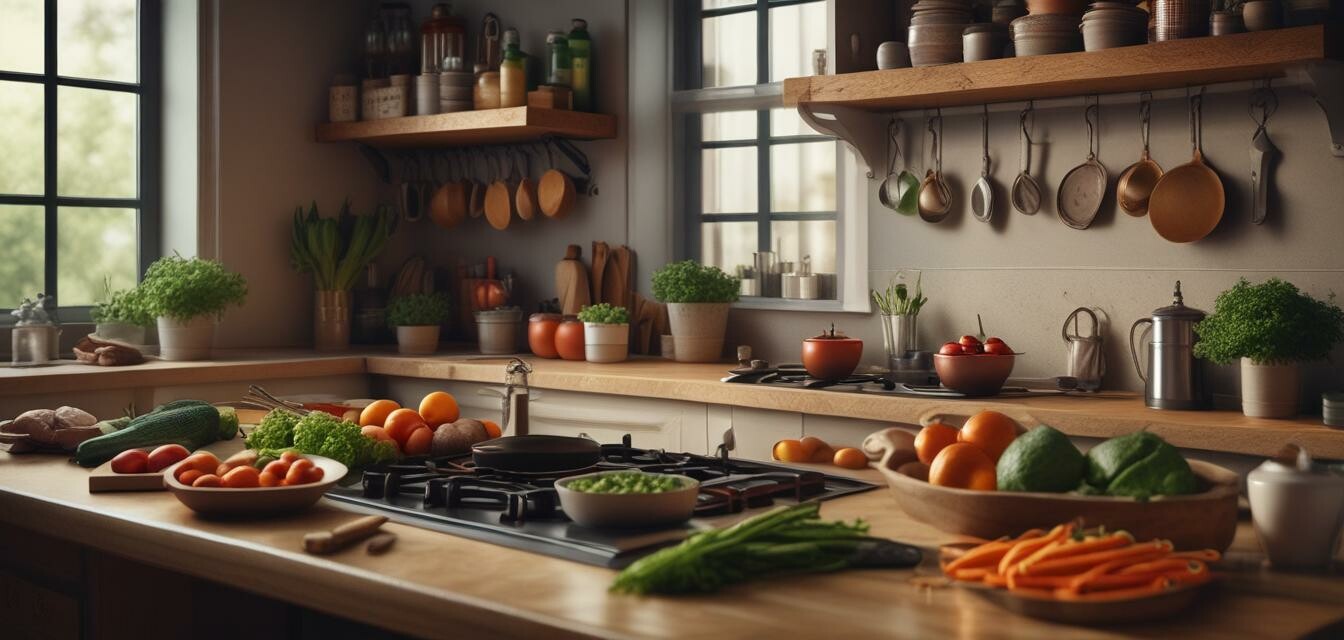
Culinary skills every new cook needs
Key Takeaways
- Understanding knife skills is crucial for efficiency and safety in the kitchen.
- Familiarity with different cooking methods can enhance your culinary versatility.
- Learning how to properly season food can elevate the taste of your dishes.
- Practicing basic measuring techniques ensures consistent results in recipes.
Starting your culinary journey can be both exciting and overwhelming. This guide is designed to equip you with essential culinary skills that every new cook should master. From knife handling to various cooking methods, we'll cover everything you need to know to confidently create delicious meals.
Essential knife skills
Knife skills form the foundation of cooking. Mastering these skills not only helps in preparation but also enhances safety. Below are some essential knife techniques that every new cook should learn:
| Knife Technique | Description |
|---|---|
| Chopping | Using a rocking motion to cut food into small, uniform pieces. |
| Dicing | Cutting ingredients into small, even cubes. |
| Slicing | Making thin cuts to create even slices of food. |
| Julienne | Cutting food into long, thin strips. |
Knife safety tips
- Always use a sharp knife for better control.
- Cut on a stable surface to avoid slips.
- Keep your fingers curled away from the blade while cutting.
Understanding cooking methods
Familiarizing yourself with different cooking methods enables you to explore a variety of cuisines. Here’s a quick overview of common cooking techniques:
| Cooking Method | Description | Best For |
|---|---|---|
| Boiling | Cooking food in water or broth at high temperatures. | Pasta, vegetables |
| Sautéing | Cooking food quickly in a small amount of oil over high heat. | Vegetables, meats |
| Baking | Cooking food using dry heat in an oven. | Desserts, bread |
| Grilling | Cooking food on a grill over direct heat. | Meats, vegetables |
Basic seasoning techniques
Seasoning food enhances flavor and is crucial for any dish. Here are key elements you should know:
- Salt: The most essential seasoning, amplifying the natural flavors of ingredients.
- Herbs: Fresh or dried herbs provide depth and aroma; experiment with basil, thyme, or rosemary.
- Spices: Spices add unique flavors; try cumin, paprika, or cinnamon in various dishes.
Measuring techniques for consistency
Consistency in your cooking can be achieved through proper measuring. Here’s a breakdown of measuring techniques:
| Measurement Type | How to Measure |
|---|---|
| Dry ingredients | Use measuring cups or spoons, leveling off with a knife. |
| Liquid ingredients | Use a liquid measuring cup with clear markings; check at eye level. |
| Weight | Utilize a kitchen scale for accuracy in recipes. |
Tips for new cooks
- Start with simple recipes to build your confidence.
- Practice regularly to improve your skills.
- Don't be afraid to experiment with flavors and techniques.
- Join cooking communities online to share experiences and learn from others.
Pros
- Learning essential skills boosts confidence in the kitchen.
- Improved techniques lead to better meal quality.
- Understanding various methods increases versatility.
Cons
- Can be overwhelming for complete beginners.
- Requires practice to master skills.
Mastering these culinary skills is a journey that every new cook should embark on. For more tips and guides, check out our Cooking Tips & Techniques section. Dive deeper into specific topics like cutlery and knives or explore our kitchen appliances to elevate your cooking experience!